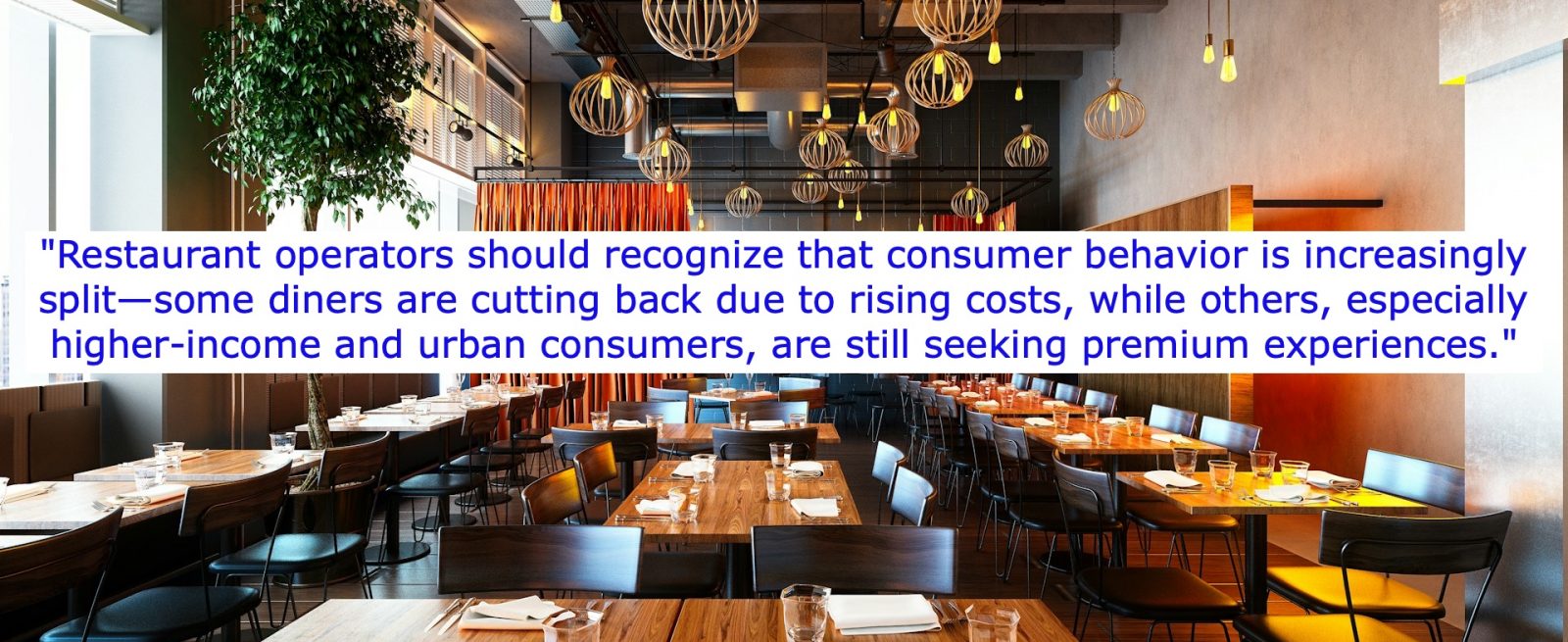MRM EXCLUSIVE: Personalized Promotions Must Line the Loyalty Path
3 Min Read By MRM Staff
While overall interest in AI-driven restaurant features remains low, loyalty is increasingly influenced by personalized promotions, according to the Summer 2025 Consumer Trends Report from Provoke Insights in collaboration with Modern Restaurant Management (MRM) magazine. Nearly one-third of consumers stated that tailored deals enhance their commitment to a particular restaurant.
"While technology has the potential to enhance the dining experience, the research shows that AI integration isn’t a top priority for most consumers,” said Carly Fink, President, Head of Research & Strategy for Provoke Insights.“Patrons are more interested in tools that offer convenience and personalization—like self-service kiosks or tailored deals.”
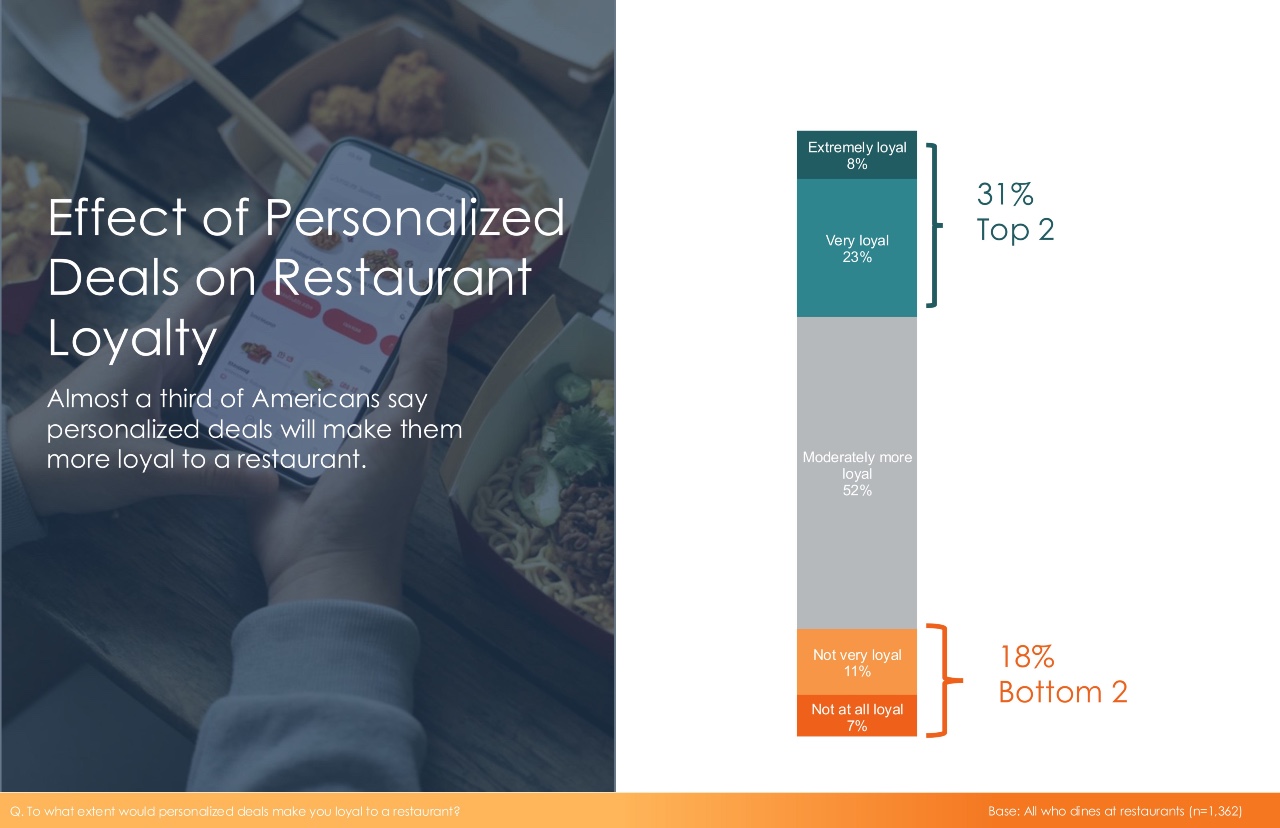
Among the other highlights:
-
High-income earners, particularly those with household incomes above $150,000, and urban dwellers are significantly more likely to dine out at least once a week and patronize high-end restaurants.
-
Those dining out less frequently tend to have household incomes below $150,000, with nearly one-quarter of Americans eating at restaurants only a few times a year or less.
-
Millennials and parents also over-index in restaurant visits, with a strong inclination toward nightlife activities and premium dining experiences.
-
While there was a brief dip in consumer awareness of menu price increases in late 2024, the spring of 2025 has seen a moderate rise, affecting dining habits and consumer perceptions of value.
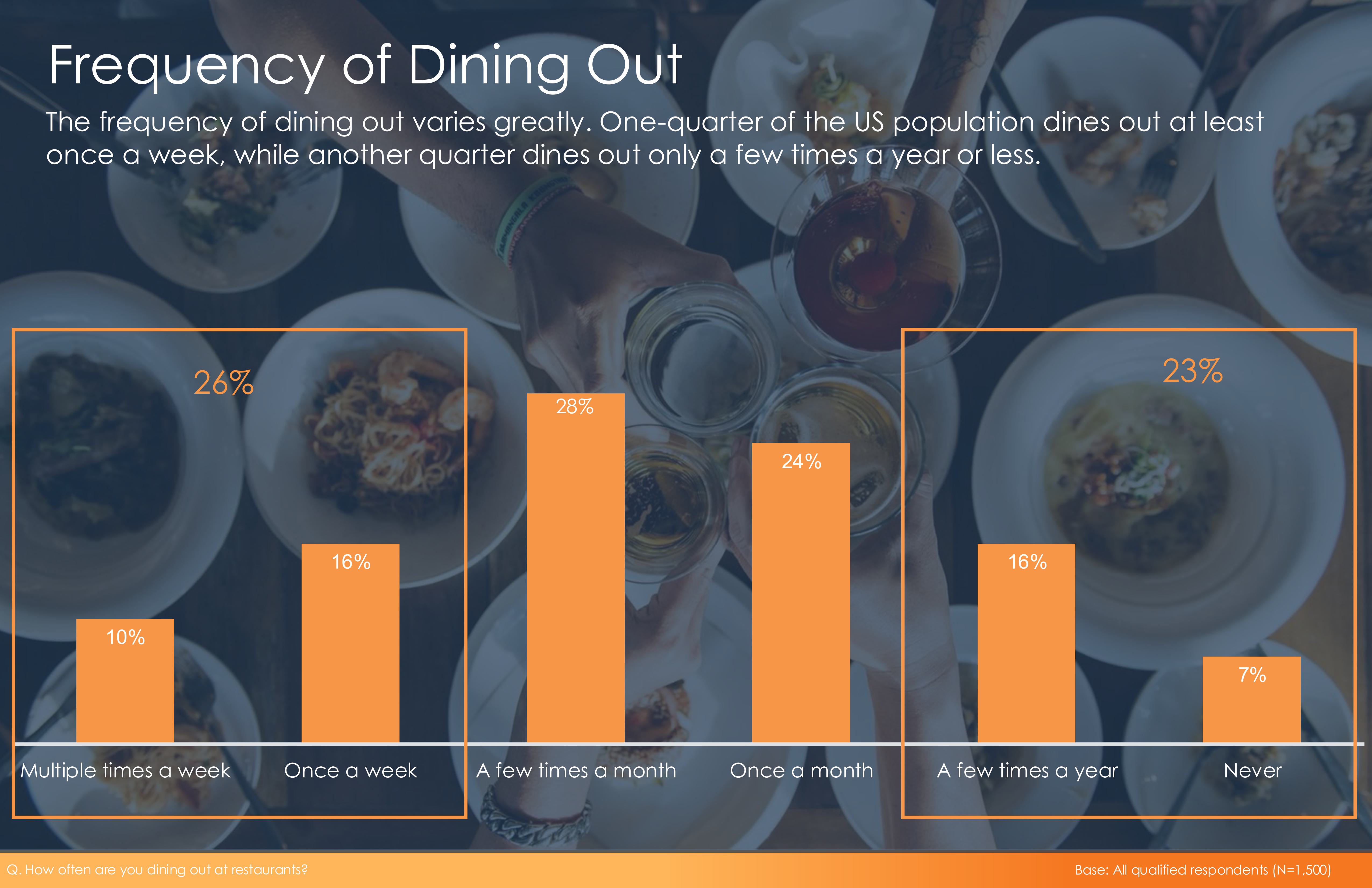
Fink points out that there is no one-size-fits-all approach when it comes to dining out.
“Restaurant operators should recognize that consumer behavior is increasingly split—some diners are cutting back due to rising costs, while others, especially higher-income and urban consumers, are still seeking premium experiences. It’s a balancing act that depends on who you’re trying to reach and the kind of guest experience you want to deliver."
Research shows that nearly one-quarter of Americans dine out only a few times a year or less, primarily due to inflation concerns with 73 percent of respondents reporting noticing higher prices more at restaurants. This was only topped by grocery store increases at 79 percent.
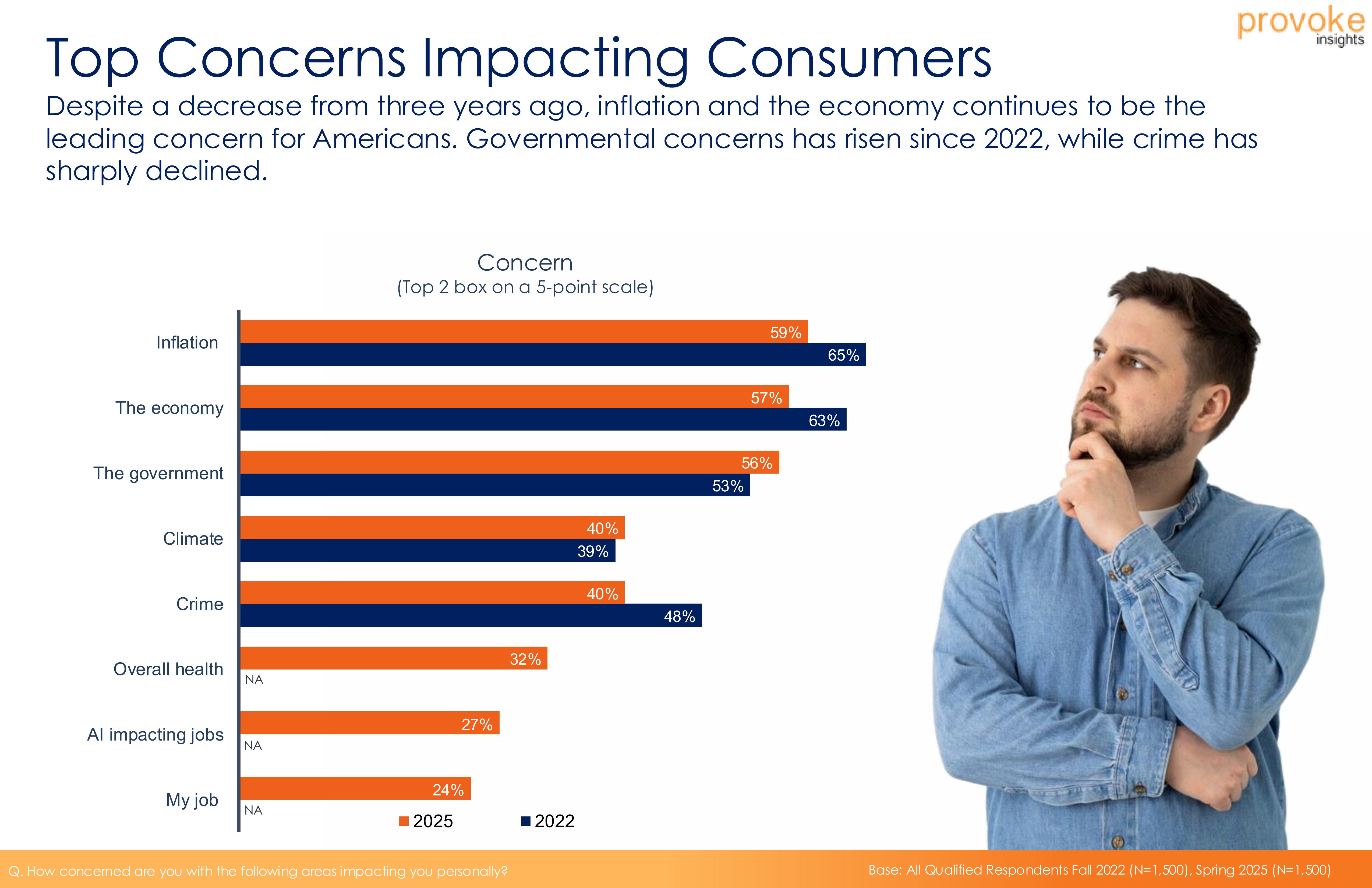
”Restaurants face a challenge as they work to entice low-frequency diners back and encourage more visits from existing guests,” said Fink.”Delivering a stronger sense of value through budget-friendly offerings or elevated experiences can help, especially as higher-income and urban consumers are still dining out regularly and seeking quality."
Fink suggests promoting family-friendly experiences, such as special “family night out” events, while high-end restaurants should position themselves as an escape from daily responsibilities, offering luxurious and relaxing experiences tailored to busy parents and professionals looking for a refined dining atmosphere.
“With rising prices tied to eggs and imported goods, restaurants will need to think creatively about their menus,” Fink said. “Our research shows inflation is no longer at its peak but still impacts consumer behavior, especially around perceived value. Operators should explore local sourcing, seasonal ingredients, or alternative recipes that reduce reliance on high-cost imports—think savory breakfast bowls instead of traditional egg dishes, or globally inspired flavors using domestic produce.”
Restaurants should focus on tech that adds real value, not just innovation for innovation’s sake, Fink noted.
“AI should be introduced where it adds the most value—fast food and fast casual restaurants can benefit from kiosks and automated ordering, while full-service restaurants should focus on enhancing hospitality and personal service rather than automation,” said Fink. “Additionally, restaurants across all categories can leverage AI for personalized deals, using consumer data to offer tailored discounts and menu recommendations that drive repeat visits.”
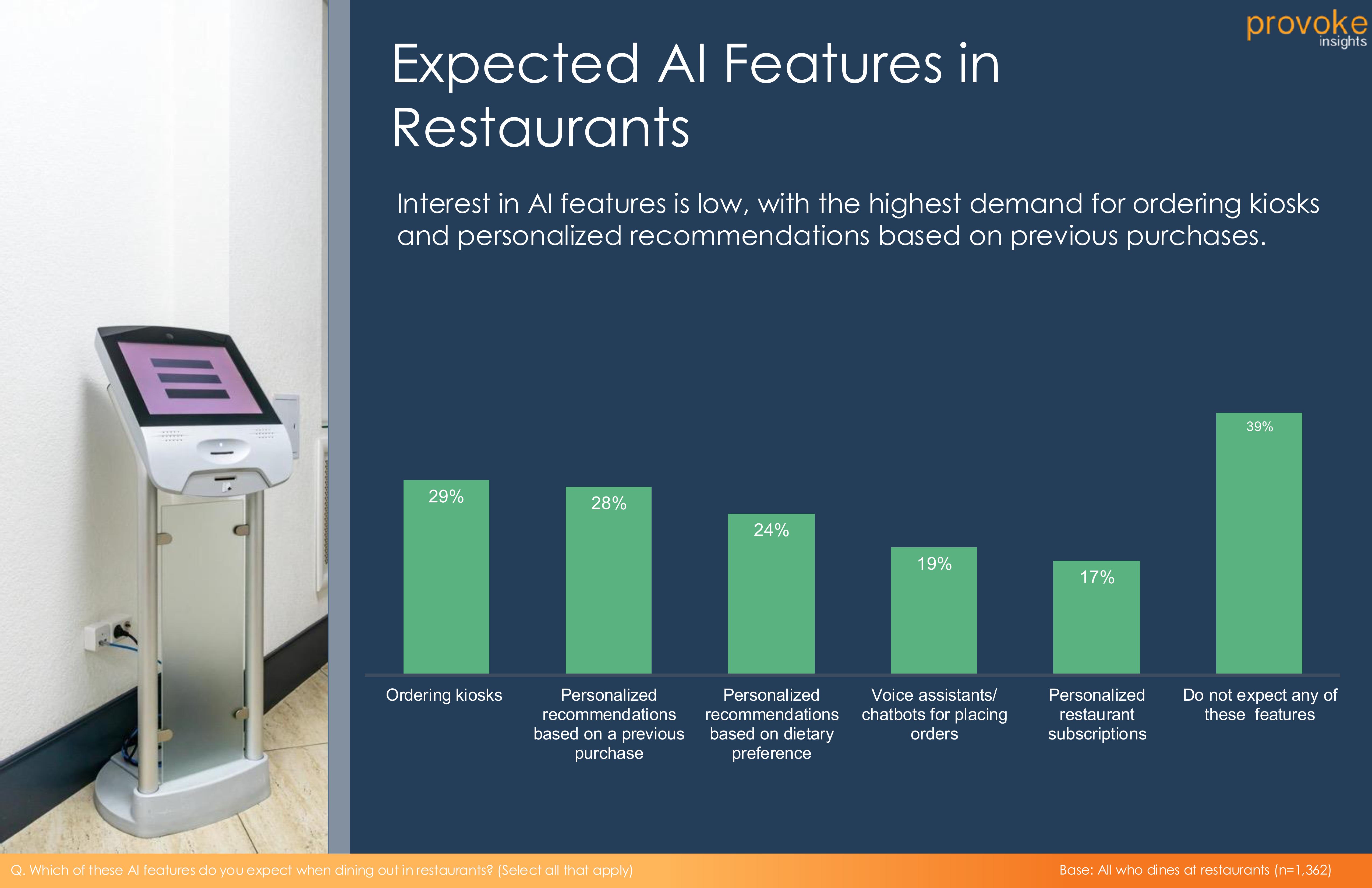
The survey found that consumers are feeling optimistic about the future. Fink says a main reason consumers feel optimistic about the future is a renewed focus on family and personal well-being.
“Restaurants can tap into this by offering family-friendly initiatives like ‘kids eat free’ nights, shareable meals, or playful, welcoming atmospheres that make dining out easy and enjoyable for all ages. On the well-being side, offering health-conscious menu options, plant-based dishes, and transparent ingredient sourcing can resonate with guests who are prioritizing their physical and mental wellness.”
Provoke Insights conducted a 15-minute online survey among 1,500 Americans aged 21 to 65 in March 2025 for this bi-annual study that finds insights into shifting consumer behaviors across industries. Now in its tenth wave, the study continues to uncover key trends in Americans’ buying behaviors and attitudes toward AI’s integration into shopping, including consumer receptivity and adoption.

